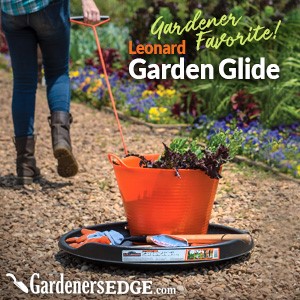
To spray or not to spray? For many gardeners it’s simple, you see bugs, you get out the bug spray and the problem is solved. In a few weeks when the bugs are back, you spray again, and again. It’s a never-ending cycle. If the plants are alive, the bug spray is close by. This has been the way gardeners dealt with bugs for decades and as a result, most of the common pests are immune to many of the pesticides used. This means you must apply more pesticides more often to achieve fewer results. In addition to the cost and hassle involved, there are potentially serious environmental and health issues with using pesticides. It pollutes our air and water and has been linked to many types of cancer. Most pesticides also kill off any beneficial insects in the area where they would be dining on the same pests we are trying to eliminate. In the last few decades alternatives have become available. Beneficial Insects are commercially available and are one of the most effective and environmentally friendly options you can use. However, if the pest is out of control some earth friendly pesticides can help to knock their population down before you apply beneficials to clean it up. There are products on the market that are safe for the environment that won’t have long term affects on beneficial insects.
Insecticidal Soap has a high concentration of fatty acids which work by dissolving the insect’s waxy covering. This soon leads to death for the pests. You must get the soap directly on the insect, so be sure to spray both the top and bottom of the leaves. A quick internet search will find dozens of homemade recipes for soapy sprays and many of these can be quite effective. Like most pesticides, soapy sprays don’t usually kill the pest eggs, so you may need to reapply every few days as new insects hatch. Soapy sprays don’t leave a harmful residue, so after a few applications you can release beneficial insects to clean up any remaining pests and eggs.
Monterey Lawn and Garden makes an effective slug/snail bait that is safe for children and pets and breaks down into a fertilizer. Sluggo uses Iron Phosphate as its active ingredient. Simply sprinkle the granules around your plants and it controls slugs and snails for several weeks without harming beneficials. They also have a product called Sluggo Plus which is just like the original Sluggo but with the addition of Spinosad. Spinosad is a bacterium that comes from Saccharopolyspora spinosa, a rare actinomycete collected from soil in an abandoned rum distillery on a Caribbean Island. When ingested it excites the insect’s nervous system which eventually leads to death. It works great on earwigs, sowbugs, and other insects that might eat it, but it does not work well on sucking insects like mites and aphids. There are other bacteria available for control of specific insects such as Bacillus Thuringiensis which controls caterpillars or fungus gnats. This is an excellent article on how BT works.
Bacteria are safe to use and do not harm beneficial insects or people and pets. There are safe and nontoxic options for inside your house as well. Citrus sprays made from oranges can be used to control insects in your house and kitchen. They work on contact and have a pleasant orange scent. Diatomaceous Earth and Powder Guard can be used where the insects are entering your house. Diatomaceous Earth is made from crushed up ancient sea creatures and Powder Guard is made from crushed limestone. Both are a very fine powder, but to an insect they are abrasive and when the pests walk through it, they get tiny cuts all over their body. They will then soon lose precious body moisture and die.
There are many horticultural oils available that can be applied to control pests. Neem oil is commonly used; however, when used in heavy amounts it can go systemic and enter the plant tissue. As with any of the above-mentioned sprays and controls, they are most affective to knock down the insect population. For best results beneficial insects should be released soon after to help clean up any remaining eggs and insects. For insect pests it seems Mother Nature has the best controls.
Nathan Jackson is the owner of Nature’s Control and Ladybug Indoor Gardens. You can send your specific bug questions to nathan@naturescontrol.com. For more information visit NaturesControl.com or call 541.245.6033.
Related Articles & Free Email Newsletter Sign Up
How to Identify and Eliminate Mealybugs
How to Identify the Pest You are Dealing With




Comment here